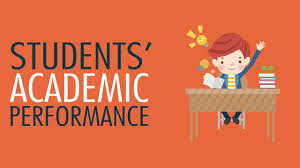Social media has become a major part of students’ lives, offering a platform for communication, entertainment, and learning. However, its influence on academic performance is a topic of growing concern. While social media can provide educational benefits, excessive use may lead to distractions, reduced focus, and lower academic achievement. This article explores the positive and negative effects of social media on student performance and offers tips for maintaining a healthy balance.
Positive Effects of Social Media on Student Performance
- Access to Educational Resources
- Social media platforms provide students with access to online tutorials, academic discussions, and study groups.
- Websites like YouTube, LinkedIn Learning, and educational blogs offer free learning materials on various subjects.
- Enhanced Collaboration and Communication
- Students can connect with classmates and educators to discuss assignments, share notes, and seek academic support.
- Platforms like WhatsApp, Telegram, and Facebook groups help students stay updated on coursework.
- Skill Development
- Social media helps students improve research skills by exposing them to different perspectives on various topics.
- Platforms like LinkedIn and Twitter offer networking opportunities, helping students develop career-related skills early.
Negative Effects of Social Media on Student Performance
- Distraction and Reduced Focus
- Constant notifications and the urge to check social media can disrupt study sessions, reducing concentration.
- Many students spend hours scrolling through feeds instead of completing assignments or revising for exams.
- Sleep Disruptions
- Late-night social media use can affect sleep patterns, leading to fatigue and poor academic performance.
- Blue light from screens reduces melatonin levels, making it harder to fall asleep.
- Decreased Productivity
- Excessive social media use leads to procrastination, causing students to miss deadlines or submit low-quality work.
- Time spent on social media could be used for more productive activities like reading or revising.
- Mental Health Issues
- Social media pressures, such as comparison and cyberbullying, can lead to anxiety, stress, and lower self-esteem.
- Poor mental health can negatively impact concentration, motivation, and overall academic performance.
How Students Can Use Social Media Responsibly
- Set Time Limits – Allocate specific times for social media use to avoid excessive screen time.
- Use Social Media for Learning – Follow educational pages and participate in study groups.
- Disable Notifications – Reduce distractions by turning off unnecessary notifications during study hours.
- Prioritize Sleep – Avoid using social media late at night to ensure proper rest.
- Take Breaks – Short breaks during study sessions help maintain focus and prevent burnout.
Conclusion
Social media can be both beneficial and harmful to student performance, depending on how it is used. While it offers valuable learning resources and collaboration opportunities, excessive use can lead to distractions and lower productivity. By managing social media time wisely, students can strike a balance between online engagement and academic success.









